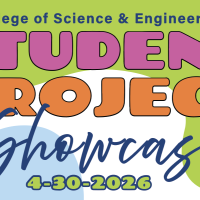Rosenberg Institute Spring Seminar Series @ EOS Center
Overview
Synthesizing community and ecosystem responses in global change experiments
Kimberly Komatsu, Senior Scientist, Smithsonian Environmental Research Center
Abstract: Global change is altering resource availability, which in turn is predicted to change the composition and functioning of communities. Here, I synthesize plant and ecosystem responses to resource manipulations from over 100+ global change experiments in the CoRRE (Community Responses to Resource Experiments) database. First, we show that community composition changes are greater than changes in richness alone. Next, we explore methods to study community compositional changes based on rank-abundance curves. We show that plant communities are changing in dynamic ways, with no one best measure to study these changes. The synthesis demonstrates the need to take a wholistic approach to studying community changes. Finally, I explore how ecosystem production is affected by resource experiments through changes in community composition.
Bio: Dr. Kim Komatsu is a conservation ecologist with a research focus on community and ecosystem responses to global change drivers. She received her BS from University of California, Irvine and PhD from Yale University, where she studied the roles of nutrient availability, climate, and herbivory in driving grassland community composition and ecosystem function. Kim spent a postdoc at University of California, Berkeley, investigating how mutualistic interactions are impacted by global change drivers in the legume-rhizobia system. In 2017, Kim started as a Senior Scientist at the Smithsonian Environmental Research Center (SERC) in Edgewater, MD. Her research at SERC builds upon her history of examining the effects of human activities on the environment in natural and agricultural systems.
